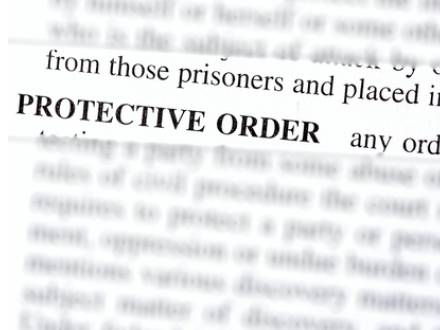Temporary vs. Final Protective Injunctions in Florida
 Domestic violence in Florida is legally defined as an assault, battery, sexual assault, stalking, kidnapping, or any other criminal offense that results in the injury or death of a family or household member by another family or household member. A dating relationship that has happened within the last six months in also this category under Florida statute.
Domestic violence in Florida is legally defined as an assault, battery, sexual assault, stalking, kidnapping, or any other criminal offense that results in the injury or death of a family or household member by another family or household member. A dating relationship that has happened within the last six months in also this category under Florida statute.
Court-ordered protection may be sought by those who claim they are victims of domestic violence. This protection comes in the form of a protective injunction, sometimes known as a restraining order. While the two terms may be used interchangeably, legally, Florida has only protective injunctions. If you have had a protective injunction taken out against you, whether warranted or not, speaking to an experienced Fort Lauderdale, FL criminal defense lawyer can be extremely beneficial.
What Is a Protective Injunction?
Protective injunctions are for victims of domestic abuse, whether that involves dating violence, sexual violence, stalking, or repeat domestic violence. A protective injunction can be taken out against a current or former spouse who still lives in the home, those who have a child together, a blood relative, or anyone who resides in the home as a part of the family.
In some instances, a person can obtain a protective injunction against someone who once shared their home but no longer does. A protective injunction can prohibit the defendant from contacting the petitioner directly or indirectly, order the defendant to stay a specific distance from the petitioner’s home, school, or workplace, surrender firearms, or vacate the home shared with the petitioner.
A protective injunction can also order the defendant to attend counseling, forfeit custody of the couple’s children, pay child support, or perform any other actions the court deems necessary to protect the petitioner.
Temporary Protective Injunctions
If the situation is an emergency, a temporary protective injunction may be issued and will stay in effect for no longer than 15 days. Before the 15 days ends, there will be a full hearing to determine whether a final injunction is warranted. Even when a temporary injunction is denied, a hearing date could still be set for a final injunction. Both parties will be allowed to present their case at this hearing.
Before a temporary injunction is granted, the judge must be satisfied that there is sufficient evidence against the defendant to warrant the injunction. The judge must also believe that irreparable injury will be caused to the petitioner if the temporary injunction is not granted. The temporary injunction takes effect as soon as the defendant is served with a copy of the order.
Final Protective Injunctions
A final protective injunction can last for a specified period of time or indefinitely. The court can require the defendant to refrain from doing certain things, do certain things, and report to the court on a regular basis under a final protective injunction. A permanent protective injunction is a final injunction, but a final injunction is not always permanent.
Each party can bring witnesses to testify on their behalf at the final protective injunction hearing. The petitioner may be allowed to remain in a shared dwelling, while the defendant may be ordered to leave the home. The defendant can be ordered to attend a Batterers’ Intervention Program.
Contact a Broward County, FL Domestic Abuse Defense Lawyer
Whether you are facing a temporary or final Florida protective injunction, regardless of whether you feel the order is justified, it is important that you speak to a Fort Lauderdale, FL domestic abuse defense attorney from The Hoffman Firm. Attorney Hoffman is an available, experienced, and aggressive attorney who treats his clients with compassion while offering highly personalized service. Call 954-524-4474 to schedule a free consultation.
















